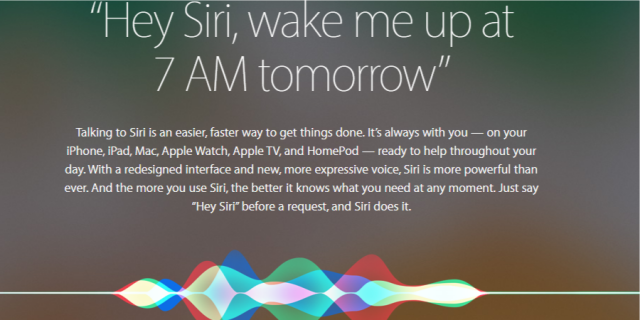5 ways artificial intelligence is being used today
The idea of artificial intelligence (AI) has always beguiled and fascinated humanity, way before we knew what to call it.
Across centuries, the worlds of legend and fiction embraced the concept: The ancient Greeks had Hephaestus and Talos, 19th-century England had Frankenstein and his monster and, near the turn of the 20th century, Italians had Geppetto and Pinocchio. Meanwhile, scientists swapped myth for math, positing that human thought could be simulated through the use of logical, systematic, and arithmetic methods.
From the Turing machine all the way to Deep Blue, AI has certainly come a long way. While AI’s representation in popular media typically involves some form of offensive or violent application of the technology in the far-flung future, it helps to remember that there are numerous ways it is being put to productive use right now — sometimes, in ways we may not even realize.
AI for everyday tasks
Nowadays, it is not uncommon to hear about virtual assistants. There's Siri, Apple's "smart" assistant, a staple of Apple’s iOS, watchOS, macOS, and tvOS operating systems. There's also Amazon's Alexa, and Google Assistant .
When a user talks to Siri, the app recognizes and stores that voice command as a data file. Siri accomplishes this through a voice recognition algorithm that was likely developed using Supervised Learning, a subcategory of Deep Learning that involves being “trained” in advance to choose which course of action to take in a given situation. Afterwards, Natural Language Processing (NLP) enters the picture, enabling Siri to interpret the data file, convert it into text, and match the newly extracted information with the corresponding function on your device.
In short, Siri saves your verbal order as data, spells it out, and carries out your command on its own. Smart, indeed.
AI in job-hunting
Nowadays, AI also plays a role in matching people looking for work with potential employers. Recruitment technology company Kalibrr specializes in finding specific job vacancies for jobseekers, matching them using Deep Learning, Information Retrieval, Relevance Feedback, and NLP.
Kalibrr follows a Deep Learning model that allows it to get a better grasp of the job descriptions provided by prospective employers. This, in turn, enables the app to provide tailor-fit recommendations for both the job seekers and recruiters.
Like Siri, Kalibrr also employs NLP, applying it to job descriptions, candidate CVs, and so on, so that they can be translated into a format that the app’s software can process.
The app also looks at the job seeker’s history of actions (e.g. which job posts the person viewed) as well as the office’s (e.g. which candidate profiles the employer views frequently) in order to match them more precisely. Interestingly, the more you use Kalibrr, the more its recommendations become personalized and closer to your actual preferences.
AI in video games
Whether you’re the type of gamer who prefers the intricate, story-rich worlds of massively multiplayer online role-playing games (MMORPGs) or the straightforward, shoot-em-up action of first-person shooter (FPS) games, you have almost certainly encountered bots in your game.
Though different genres of games have bots for different purposes, the basic concept remains the same: A built-in AI system that assumes the role a human player normally would, for the purposes of moving the game forward and enabling actual real-world players to have a more immersive experience. Normally, players can control how advanced or skilled the bots in their game is, depending on their preferences for that particular session. Among the standard capabilities programmed into bots are pathfinding abilities, in-game weapon and skill proficiencies, and even the ability to chat with players.
AI in transportation
Formerly known as GrabTaxi, Grab is currently the Philippines’ only ride-sharing app, after recently absorbing its largest local competitor Uber. Grab enables users to find personal drivers in real time, with corresponding pricing adjustments (“surges”) based on real-time factors that affect driver availability, the amount of time and traffic involved in getting from your pickup location to your destination, and so on.
The former VP of Data and Growth at Grab, Kevin Lee, spoke at Strata+Hadoop Singapore about how the app determines taxi availability and solves other problems through Machine Learning.
AI for getting programming and music recommendations
Have you ever wondered how Spotify whips up its always excellent Discover Weekly playlist? Or how Netflix seem to know exactly which shows to recommend to you?
Given the sheer number of choices out there, what are the odds that such entertainment platforms would be able to pick out “smart content” that actually suits your preferences?
Surprisingly good, actually — and that’s likely due to Deep Learning and Relevance Feedback.
Spotify, for example, has two key features for this purpose: Now and Radio. By applying Deep Learning, Spotify can identify common beats, themes, and other musical aspects across the vast expanse of songs in its library by examining their sound signals, looking at each song’s waveforms, and grouping similar ones together. This is how the Now feature is able to provide song recommendations with a common theme.

The Radio feature, on the other hand, uses Relevance Feedback to identify which songs you like and dislike. This assessment is based on numerous factors: whether you chose to give a song a thumbs-up or thumbs-down, how many times you’ve skipped them, if you’ve already deleted them from your playlist, and so on. Based on this, Spotify can identify and recommend songs similar to the ones you generally like, and avoid sending suggestions that are too similar to songs that you generally dislike.
These are just a few examples of how AI is present in our everyday lives. Given the rising popularity of smart technology and how more and more offices and companies are embracing the concept of the Internet of Things, we can expect AI to play an even bigger role in our future, perhaps even beyond what we’ve managed to imagine so far.
Skynet can keep their killer robots to themselves, though, thank you very much. — LA, GMA News




